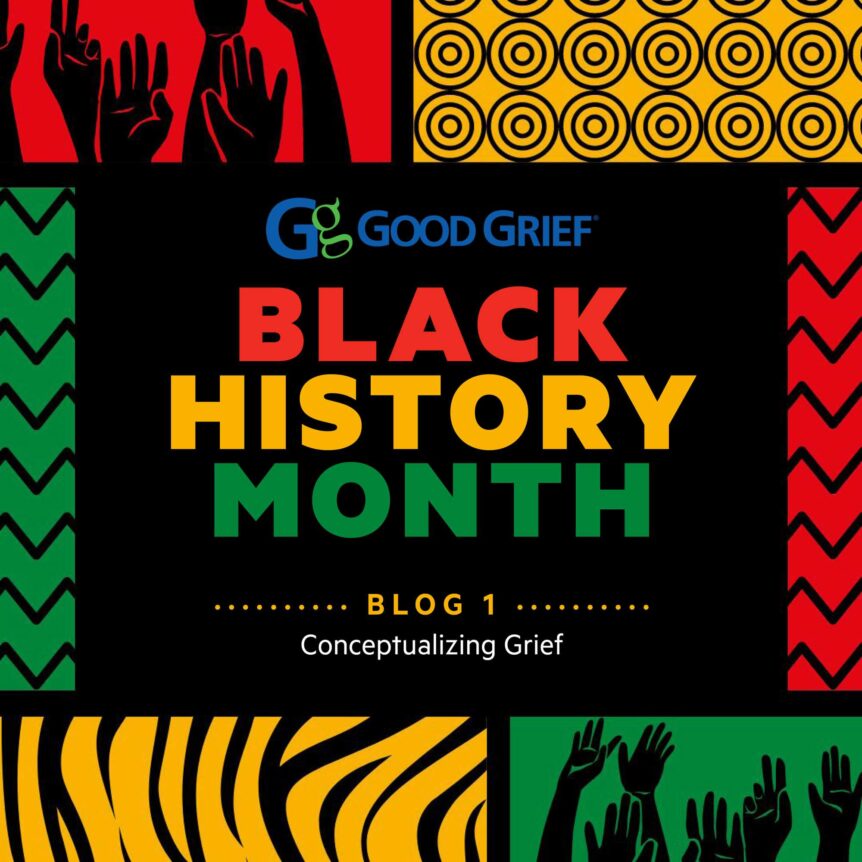Black History Month Blog – Understanding your grief, and the grief of others
Part 1 of 3
In honor of Black History Month, this blog series sets out to provide a high-level understanding of the unique grief experiences faced by Black communities in the US. This series serves to give a very condensed summary of some of the existing literature on Black grief experiences in the US. The goal is to introduce concepts and provide an introduction into the topic of Black grief and the many social, historical, and systemic factors that contribute to it. To lay the foundation, this blog will start by exploring what grief is, and the effects it has on us.
What is Grief?
The Mayo Clinic defines grief as a strong, sometimes overwhelming emotion for people that is the natural reaction to loss. Grief is both a universal and a personal experience. Grief is not limited to death and can include any significant loss. Source
The American Psychological Association Dictionary of Psychology defines grief as the anguish experienced after significant loss. Grief may also take the form of regret for something lost, remorse for something done, or sorrow for a mishap to oneself. Source
At Good Grief we conceptualize grief as a multifaceted response to loss. Grief is an emotional, intellectual, spiritual, and physical response. Grief is a universal, natural, healthy coping response – not pathology. Grief can be good, and while it can cause us harm, grief serves a purpose and helps us to make meaning out of our experiences.
How can Grief affect us, especially when unattended?
Grief increases inflammation and disrupts the immune system, leaving you depleted and vulnerable to infection. Grief can increase blood pressure and the risk of blood clots. Intense grief can alter the heart muscle so much that it causes “broken heart syndrome,” a form of heart disease with the same symptoms as a heart attack. Studies show bereaved participants to have a higher risk than nonbereaved participants of dying from any cause. it has been shown that increased health risk may continue for many years after bereavement, especially in surviving spouses. Source; Source
Grief can also become complicated grief. Complicated grief happens when some of the natural thoughts, feelings, or behaviors that occur during acute grief gain a foothold and interfere with the ability to accept the reality of the loss. Complicated grief increases the risk of physical and mental health problems like depression, anxiety, sleep issues, suicidal thoughts and behaviors, and physical illness. Source
Grief has both physical symptoms as well as cognitive and emotional symptoms. Grief can lead to feelings of numbness, sadness, denial, despair, and anger. Grief can also lead to feeling guilty, helpless, and hopeless. Grieving persons may experience disbelief, confusion and difficulty concentrating.
What can we do about Grief?
Effective interventions for complicated grief have been developed and empirically tested. These manualized treatments have demonstrated efficacy even in those who have had complicated grief for many years. Techniques include prolonged exposure – repeatedly telling the story of the death and in vivo exposure activities. The treatment also involves focusing on personal goals and relationships. Source
Through our Family Centers and School Programs, Good Grief provides a safe space and opportunity to process grief, and repeatedly confront one’s grief story. Through Peer Support, Adult to Child Support, and a curriculum of building and modeling adaptive skills, participants build healthy relationships and are empowered to focus on personal goals. This not only supports grievers but can help balance some of the physical complications caused by the body being a state of constant stress from ongoing adversity.
–

